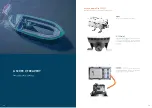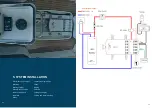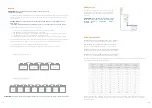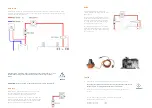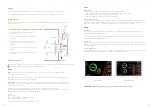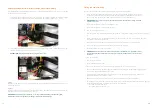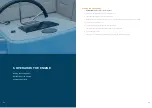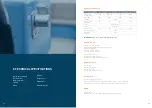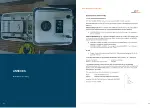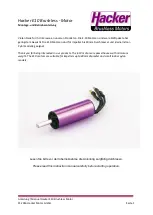
Annual inspections by you or your supplier
Preferably have your system inspected every year by your supplier or installer. He will check the system
on the following points:
•
Proper functioning of all components.
•
Possible moisture problems, corrosion of contacts, battery poles or plugs. Preventive application of
contact spray and lubrication of battery poles.
•
Greasing the shaft from the engine.
•
All terminal clamps and connectors are securely in place.
•
All fixing bolts and nuts must be properly tightened.
•
Possible damage to cables and components.
•
The condition and correct voltage of all batteries.
• Load:
If you have a multimeter, check the voltage of each battery by putting the meter on the
+ and - terminals of one battery while the engine is running. There should be no difference
between the batteries greater than 0.1 Volt. If this is the case, please contact your supplier
or installer.
• No-load:
After charging the batteries, measure them individually and check again that the
difference between them is not too great. Check the specifications of your battery, or ask
your supplier, if the voltage is high enough.
•
Any imbalance in the engine/propeller shaft system.
•
The correct settings of the display.
Winter storage
During and after winter storage, the same recommended checks apply as above. Pay special attention to
charging the batteries and keeping them charged. If your boat has a power point during winter storage,
leave the shore power connected. Your charger will automatically switch on and off when needed. It is
recommended that you check your boat and batteries at least twice during the winter to make sure the
charger is connected and the batteries are still charged.
If there is no power point near your boat, put the boat away with fully charged lead-acid batteries and disconnect
the main + and - of the battery pack. Make sure that no consumers are connected to the battery pack. With
lithium batteries, it is wise to store the boat in the same way, but with batteries that are around 50% charged.
This extends the service life of these batteries.
Using the engine on salt water
When operating on salt water, it is important to pay extra attention to the following points.
•
Close the installation area(s) tightly to salt water.
•
Ensure that these areas are ventilated.
•
Check all components regularly for corrosion.
•
Clean thoroughly twice a year.
•
Grease the shaft.
•
Use protective spray for the rest of the engine if necessary..
40
41



